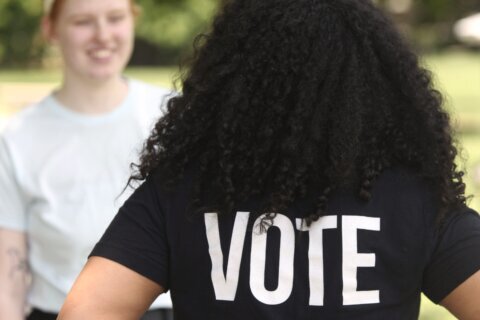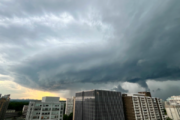Student activism has been prominent on college campuses across the U.S. for generations, from the Civil Rights Movement and Vietnam War decades ago to more recent protests surrounding Black Lives Matter, the overturn of Roe v. Wade and the latest war between Israel and Hamas.
“Campuses have traditionally been places where there is free exchange of ideas, the unfettered pursuit of the truth and an encouragement of students to be engaged in public discourse,” says Lynn Pasquerella, president of the American Association of Colleges and Universities, an organization focused on advancing equity within higher education.
However, there are limitations, and sometimes punitive consequences — if laws or campus policies are broken — for participating in protests. Here’s what college students should know about engaging in rallies, sit-ins and other on-campus protests.
Protesting on a Public vs. Private College Campus
Public universities are bound by the First Amendment — which protects freedom of speech and the right to peacefully assemble — while private institutions are not, experts say.
“Unless there is a relevant state law, private colleges and universities can have whatever protest policies they want, including prohibiting all protests if that’s their decision,” says Ben Wizner, director of the American Civil Liberties Union’s Speech, Privacy, and Technology Project.
“Now, most private colleges adopt free expression principles that at least approximate the standards of the First Amendment. But it’s important to know that those are not generally enforceable. So if they decide that they don’t like the direction of a particular protest movement, they can change those rules.”
[Read: How to Find a Strong Human Rights Law Program]
Because of this, those attending private colleges in particular need to refer to their student handbook and understand their campus’ time, place and manner rules.
“Even for speech that is permitted, it’s not permitted at all times and in all places,” Wizner says. “That’s because colleges have to function, people have to get in and out of buildings, people have to use libraries. Almost every school will have a rule that prohibits the kind of encampments or building takeovers that we’ve seen” with the protests related to the Israel-Hamas war. “Nonetheless, I wouldn’t tell a student not to do that. I would just make sure they understand that doing so is civil disobedience. It’s likely to escalate the response.”
The Do’s and Don’ts of Protesting
Students protest to “raise awareness and push for change on issues they feel are being overlooked or mismanaged by those in power, especially after going through the expected avenues have failed,” Stephanie Hall, senior director for higher education policy at the Center for American Progress, an independent policy institute based in Washington, D.C., wrote in an email. “This could include concerns over social justice, human rights, the environment or internal issues around campus policies or administrative decisions.”
However, before participating, it’s important to have a plan as “well organized logistics decrease the chances of unsafe situations cropping up,” she says.
“Know the cause,” Hall adds. “Be informed about the issue, goals and demands of the protest.”
During a demonstration, students should be peaceful and nondisruptive, abstain from violence and not resist arrest — if it comes to that, says Zach Greenberg, senior program officer and a First Amendment attorney at the Foundation for Individual Rights and Expression, a nonprofit organization focused on protecting free speech on college campuses.
Not resisting arrest is a hallmark of engaging in civil disobedience — violating a law or policy in peaceful protest and accepting the consequences.
“Document everything with, usually, a cellphone,” says Greenberg, who is also FIRE’s student association counsel. “Just put a video on your recording device. That can be a really good tool in the case they are facing university discipline.”
Students should “know their rights, know the limits of what they can do, what they can’t do and adhere to those limits,” Greenberg says.
[READ: How to Study Business With a Focus on Human Rights]
Pasquerella advises against making unconditional, nonnegotiable demands and being unwilling to “listen critically and with understanding to all sides of an issue. Because if you don’t do that, you’ll never move the needle. … We all have to come to situations of protest, no matter what side we are on, in good faith and with the willingness to engage in humanistic identification.”
Students also need to be mindful of outside agitators and “the dangers of ideological filtering,” she adds. “And the messages that they are getting from certain groups and not have their movements be co-opted by extremists … They need to speak up forcefully against any messages of hate, of violence that are being put out there by those who are supposedly their allies. In the past, it may have been easier to distinguish who your allies were and who your enemies were.”
Other Considerations to Weigh Before Protesting
Presence of Social Media
Compared to protests in past generations, many people today have access to smartphones. This means videos and pictures can be posted on social media or online in a blink of an eye, which comes with both advantages and downsides, experts say.
“College students today are living in a sort of merciless world where what they do is permanently recorded and available to anyone and searchable for all time,” Wizner says. “And that may bear on the kind of decisions and risks that some young people want to make.”
Potential Institutional and Legal Consequences
Colleges can shut down protests and punish students — either through suspension or expulsion — in cases of civil disobedience, which occurs when students willingly violate university policies, disrupt campus or commit any acts of violence.
Legally, college students are considered adults, so fines or arrests can occur if laws are broken. Depending on the circumstances, the legal consequences of peaceful civil disobedience are typically not severe, Wizner says.
“You may spend half a day in jail or overnight if you get arrested at night,” he says. “You are likely to have a court appearance where the charges are dropped, provided that you don’t re-offend or get arrested again in the next six months. That’s not a guarantee and of course it depends what you are arrested for. The consequences may be different for breaking a window and entering a building at night than they are just for peacefully blocking somebody’s right of way.”
However, if students engage in this conduct repeatedly, it may affect potential career opportunities, Wizner adds, especially jobs in law enforcement or security. Additionally, private employers can choose not to hire someone if they consider the protest reason offensive.
[Related:How Law School Applicants Can Prepare for a Social Justice Career]
“Students should know what potential consequences they may face and decide if the purpose of the protest outweighs those,” Hall says. “In the context of today’s campus protests, we are seeing students overwhelmingly say that their purpose for protesting or their demands of their institutions are worth the consequences they may receive on an individual level. This is the spirit of protest, after all: putting yourself or even your livelihood on the line in the name of a bigger cause.”
Impact of Protesting in College
While students face potential consequences, peaceful campus demonstrations can result in some positive outcomes, experts say.
For instance, in the late 1980s and early 1990s, a group of students marched and protested at the University of Rhode Island, taking over the administration building and making a list of demands in response to racist incidents on campus, Pasquerella recalls.
“The administration worked with them to achieve their shared objectives around promoting racial and social justice,” she says. “I still hear from those students about how it was one of the most meaningful experiences that they had in college.”
“Protests can be a learning experience and that’s what we hope that they will do,” Pasquerella adds. “It involved negotiation on complex issues with administrators who held power. It involved working together with a team on trying to achieve a shared objective. And really putting their own sense of meaning and purpose and applying it to what they were doing in a college environment, connecting those co-curricular activities to protest with their curriculum and using that. And they use that leadership role throughout their careers. It really enhanced their ability to do their work.”
Searching for a college? Get our complete rankings of Best Colleges.
More from U.S. News
Campus Protests Escalate With Barricades, Arrests, Expulsion Threats
Congress Comes Down on Campus Protests After Arrests, Clashes
Campus Protests: University Leaders in Their Own Words
College Campus Protests: What Students Should Know Before Taking Action originally appeared on usnews.com







